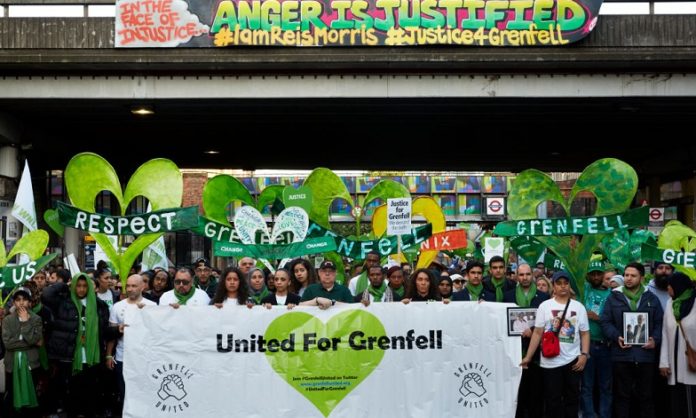
The Grenfell Tower fire has led to ‘tenant participation’ – the involvement and influence of social housing tenants in the activities of their landlords – emerging as an important issue that needs to be prioritised more consistently in some parts of the UK, according to new research.
A study carried out by Professor Paul Hickman from Sheffield Hallam University and Dr Jenny Preece from the University of Sheffield for the UK Collaborative Centre for Housing Evidence (CaCHE) found that tenant participation had slipped down the policy agenda in recent years but cited the Grenfell Tower fire as a catalyst for change in this area.
The study, which involved in-depth interviews with representatives of social housing landlords and stakeholder organisations, as well as a stakeholder focus group, found that most landlords viewed tenant participation as ‘crucial’ with the primary purpose being to improve the housing service. But for many landlords it was also about ensuring that their tenants had ‘voice, agency and influence’.
Tenant participation can bring other benefits to some individuals, such as increasing confidence and developing new skills, as well as wider social benefits including helping to reduce the isolation of vulnerable households, fostering social cohesion within communities and encouraging interaction between generations, helping to build trust. But participants were also conscious of the time and commitment involved in some types of activities, and many organisations were seeking to develop new ways of hearing from tenants.
Approaches taken by landlords to tenant participation varied, as did the extent to which it was being prioritised by organisations – with particular differences between England and Scotland. There was a view that in England tenant participation had become less of an organisational priority in recent years. By contrast, in Scotland and Wales, the general view of participants was that it had become more of a priority, particularly linked to devolved government agendas and the focus of regulatory guidance.
Dr Jenny Preece, Research Associate at the University of Sheffield’s UK Collaborative Centre for Housing Evidence (CaCHE), said: “While social housing landlords acknowledged that they needed to broaden the range of voices that they heard from, recognising that a relatively small proportion of tenants are involved in formal tenant participation activities, there are opportunities to think more expansively about how this may happen. This might mean looking at less formal ways through which tenants can influence organisational approaches, or engaging with forms of collective organising that happen outside landlord-initiated activities.
“In general, our participants viewed the culture, ethos and leadership of organisations as more important in ensuring genuine tenant power and influence, than the specific activities or mechanisms for participation.”
Paul Hickman, Professor of Housing and Social Policy, at Sheffield Hallam University, said: “Tenant participation, or how tenants can influence the activities of social housing landlords, has been a long-standing feature of the UK housing system. However, in recent years it has slipped down the policy agenda.
“The Grenfell fire tragedy has changed this, with tenant participation now firmly back as a feature of the policy landscape. The tragedy highlighted in the eyes of many commentators the lack of power and influence tenants have and more than two years on this still appears to be the case for many tenants in England, and to a lesser extent, Wales.
“Many landlords and local authorities in particular appear reluctant to cede power to tenants and seek to control tenant participation, with it being a top-down process. However, it is important to note that many of the landlords that took part in the study employ approaches that are concerned with empowering their tenants, as do many across the sector as a whole.”






